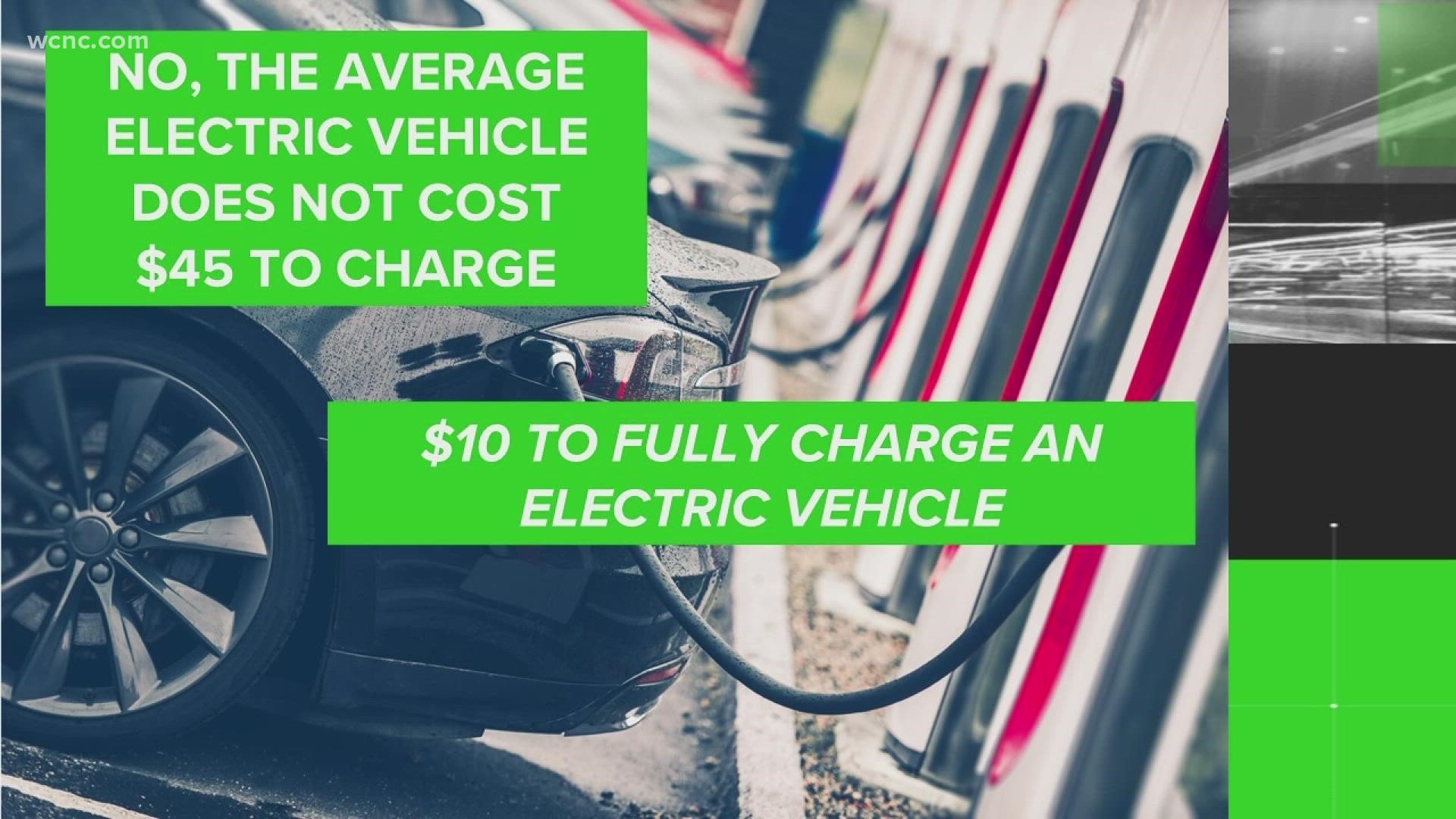CHARLOTTE, N.C. — When it comes to electric vehicles, there is a lot of information being shared online about the new technology.
One of the claims on our social media pages was about the cost to charge an electric vehicle.
THE QUESTION
Does the average electric vehicle cost $45 to fully charge?
THE SOURCES
THE ANSWER
No, it doesn't cost $45 to fully charge the average electric vehicle.
WHAT WE FOUND
The U.S. Department of Energy (DOE) estimates the average electric vehicle has a 66-kilowatt-hour battery and can go about 200 miles per full charge.
The agency conducted a study of electric vehicle owners’ charging habits that found owners pay an average of 15 cents per kilowatt-hour to charge the battery.
That means it costs roughly 5 cents to drive one mile in an electric vehicle.
If you do the math, it costs about $10 to fully charge an electric vehicle.
"So charging your EV at home, it's like buying 60 cents a gallon of gasoline at the gas station, it's just really, really cheap," Cross said. "And that's part of what makes buying an electric vehicle an economic advantage."
It is true, though, that charging an electric car can cost more than that -- if drivers use a fast charger. That can cost three times more than at-home charging, but studies show most electric vehicle drivers don't usually use fast chargers.
Additionally, many public chargers are free for electric vehicle owners.
According to a map by PlugShare, an online tool plotting out available free chargers, there are more than two dozen free Level 2 chargers in the Charlotte area.
There are three levels of electric vehicle charging. Level 1 charging uses a standard wall outlet while Level 2 charging uses a higher-powered outlet to deliver more charge per hour. Fast-charging stations can fully charge an electric vehicle in 30 minutes or less, compared to multiple hours for Level 1 and Level 2 charging.
A report from the Fuels Institute and Electric Vehicle Council in June 2021 found that 70-80% of electric vehicle charging occurs at home or in a workplace parking lot. Level 1 and Level 2 charging are most common at home and the workplace.
Additionally, prolonged use of fast-charging stations can have a negative impact on an electric vehicle’s battery capacity. Engineers at the University of California, Riverside found that high temperatures and resistance from fast charging at commercial stations can cause cracks and leaks, the Institution of Mechanical Engineers reported in 2020.
VERIFY is dedicated to helping the public distinguish between true and false information. The VERIFY team, with help from questions submitted by the audience, tracks the spread of stories or claims that need clarification or correction. Have something you want VERIFIED? Text us at 704-329-3600 or visit /verify.

